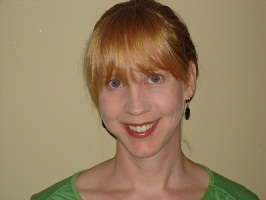非常抱歉,
你要访问的页面不存在,
非常抱歉,
你要访问的页面不存在,
非常抱歉,
你要访问的页面不存在,
验证码:

职称:Associate Professor of Spanish
所属学校:Wake Forest University
所属院系:The Latin American and Latino Studies Program
所属专业:Latin Language and Literature
联系方式:336-758-5807
Margaret Ewalt, Associate Professor of Spanish, has been teaching at Wake Forest University since 2001. She received her B.A. from Colby College, Maine and her Ph.D. from the University of Virginia. Her teaching, research, and publication interests include the Enlightenment in Spain and Spanish America, Eighteenth and Nineteenth-Century Latin American Literature, and Colonial Spanish American Literature. She is the author of Peripheral Wonders: Nature, Knowledge, and Enlightenment in the Eighteenth-Century Orinoco (Bucknell University Press, 2008) and several articles on trans-Atlantic eighteenth-century natural history writing. Baconian practitioners in Spanish America opened learned discourse to Amerindian and West African epistemologies and folded alternative knowledge paradigms into the wider, universalizing narrative of European scientific progress and modernization. Currently reading for evidence of these complex reciprocities of transcultural knowledge production, Dr. Ewalt hopes that her second book, tentatively titled, Francis Bacon in Hispanic Science: Knowledge, the Nature of Modernity, and the Spanish World, 1539-1782 will push beyond Eurocentric critical boundaries and expand the questions that scholars pose about textual evidence.
Margaret Ewalt, Associate Professor of Spanish, has been teaching at Wake Forest University since 2001. She received her B.A. from Colby College, Maine and her Ph.D. from the University of Virginia. Her teaching, research, and publication interests include the Enlightenment in Spain and Spanish America, Eighteenth and Nineteenth-Century Latin American Literature, and Colonial Spanish American Literature. She is the author of Peripheral Wonders: Nature, Knowledge, and Enlightenment in the Eighteenth-Century Orinoco (Bucknell University Press, 2008) and several articles on trans-Atlantic eighteenth-century natural history writing. Baconian practitioners in Spanish America opened learned discourse to Amerindian and West African epistemologies and folded alternative knowledge paradigms into the wider, universalizing narrative of European scientific progress and modernization. Currently reading for evidence of these complex reciprocities of transcultural knowledge production, Dr. Ewalt hopes that her second book, tentatively titled, Francis Bacon in Hispanic Science: Knowledge, the Nature of Modernity, and the Spanish World, 1539-1782 will push beyond Eurocentric critical boundaries and expand the questions that scholars pose about textual evidence.